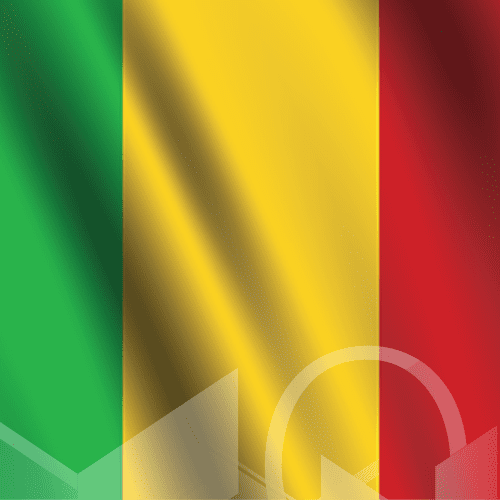
Filter
Sample Reports
Related Links
Mali
Mali is a landlocked country in West African lying mostly in the Sahara Desert with a land mass of 1,240,190 km², a GDP of US$23.2bn which is expected to grow by 4.7% in 2025 and a population of 21.9 million. Inflation is running at 3%.
Its currency is the West African Franc.
The US Geological Survey estimated undiscovered, technically recoverable resources of 1,880 billion cubic feet (bcf) of conventional gas, and 6,395bcf of shale gas in the Taoudeni Basin which is unexploited due to war and unrest.
Real GDP is projected to grow 4.7% in 2025 driven by driven by lithium production, agriculture, and telecommunications. The poverty rate is projected to remain largely unchanged in 2025 and begin to decline from 2026 onward.
Mali had resources of 840,000t contained lithium in 2022. Australian company Leo Lithium operates the Goulamina mine, while British company Kodal Minerals has the Bougouni project.
Africa is expected to supply about 90,000t of contained lithium, 23% of global supply of 395,000t, by 2030, with Zimbabwe contributing 39%, followed by Mali (21%), DRC (19%), Namibia (8%), Ethiopia and Ghana (6%), and South Africa (1%)
Gold, lithium, phosphate rock and silver are produced by companies, while artisanal and small-scale miners extract bauxite, chromite, copper, diamonds, gold, iron ore, lead, manganese, nickel, phosphate rock, rare earth elements, semi-precious stones, tantalum/niobium, and uranium. Around a third of the country’s gold production is produced by artisanal and small-scale miners.
In November 2022, British Virgin Islands-registered Cora Gold published the results of a feasibility study for its Sanankoro gold project in Mali. The US$108m mine is expected to produce an average of 1.7t per year over its 6.8-year life. Australian company Leo Lithium operates the Goulamina lithium project in Mali in which it has a 50% stake, while Chinese company Jiangxi Ganfeng Lithium Co. owns the balance. Canadian company Toubani Resources published a feasibility study for its Kobada gold project in Mali, in September 2021. The US$165.9m mine will produce an average of 3.1t of gold per year over its 16-year life.
The human rights situation deteriorated dramatically in 2022 with a surge in attacks against civilians by Islamist armed groups and killings of suspects by pro-government forces during counterterrorism operations. The government increasingly cracked down on media and opposition voices. The mounting abuses occurred against a background of an ongoing political crisis and significant tension with Mali’s diplomatic partners, anchored in Mali’s decision to employ the Wagner Group, a private military security contractor with apparent links to the Russian government.
Sources: Who Owns Whom sector reports, CIA Factbook, African Development Bank, World Bank, Trading Economics, African Statistical Yearbook and IMF. ?>
Company Profile
There is no data available at the moment
Sector Research
There is no data available at the moment


